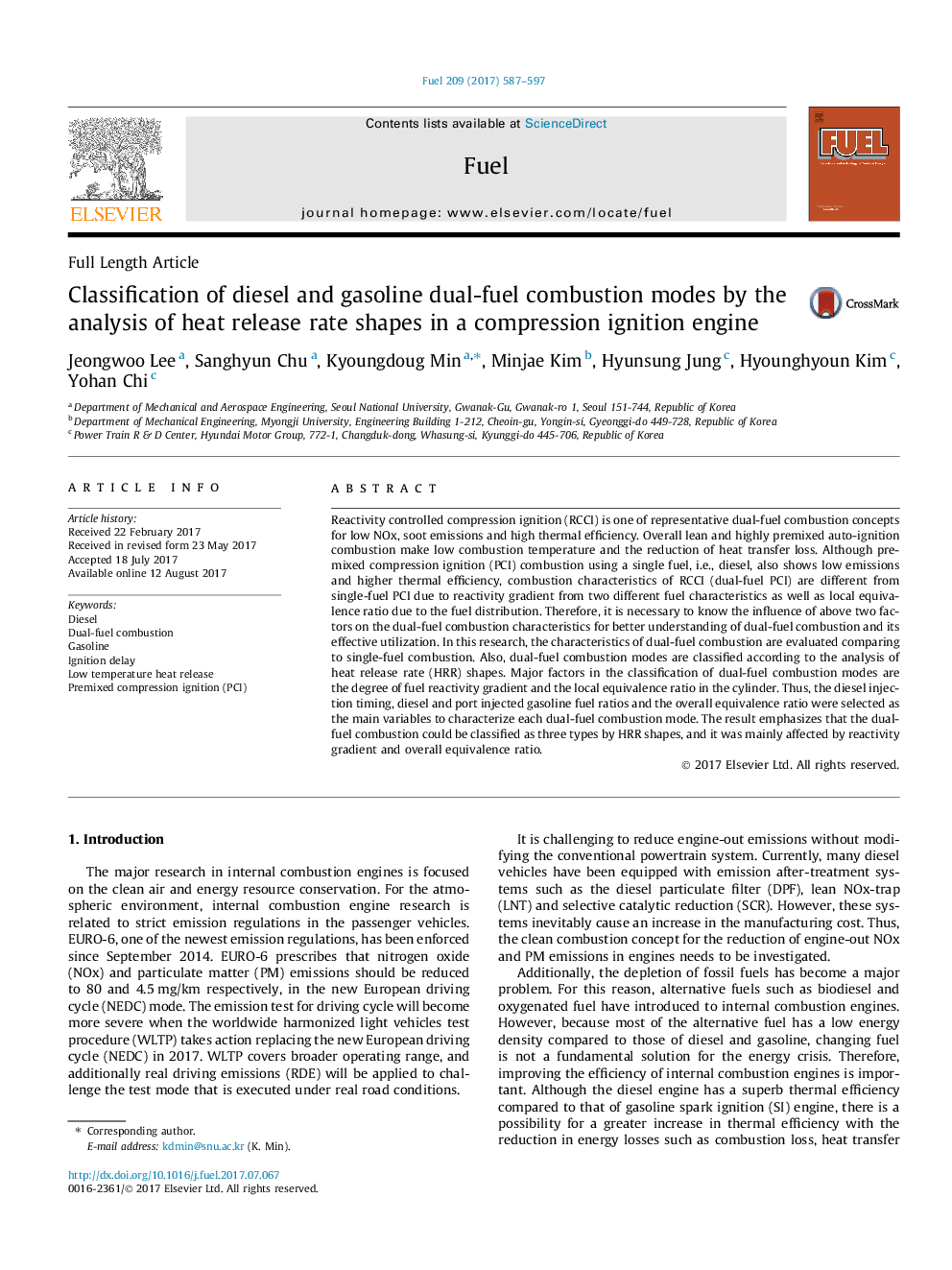| کد مقاله | کد نشریه | سال انتشار | مقاله انگلیسی | نسخه تمام متن |
|---|---|---|---|---|
| 6473978 | 1424955 | 2017 | 11 صفحه PDF | دانلود رایگان |
Reactivity controlled compression ignition (RCCI) is one of representative dual-fuel combustion concepts for low NOx, soot emissions and high thermal efficiency. Overall lean and highly premixed auto-ignition combustion make low combustion temperature and the reduction of heat transfer loss. Although premixed compression ignition (PCI) combustion using a single fuel, i.e., diesel, also shows low emissions and higher thermal efficiency, combustion characteristics of RCCI (dual-fuel PCI) are different from single-fuel PCI due to reactivity gradient from two different fuel characteristics as well as local equivalence ratio due to the fuel distribution. Therefore, it is necessary to know the influence of above two factors on the dual-fuel combustion characteristics for better understanding of dual-fuel combustion and its effective utilization. In this research, the characteristics of dual-fuel combustion are evaluated comparing to single-fuel combustion. Also, dual-fuel combustion modes are classified according to the analysis of heat release rate (HRR) shapes. Major factors in the classification of dual-fuel combustion modes are the degree of fuel reactivity gradient and the local equivalence ratio in the cylinder. Thus, the diesel injection timing, diesel and port injected gasoline fuel ratios and the overall equivalence ratio were selected as the main variables to characterize each dual-fuel combustion mode. The result emphasizes that the dual-fuel combustion could be classified as three types by HRR shapes, and it was mainly affected by reactivity gradient and overall equivalence ratio.
Journal: Fuel - Volume 209, 1 December 2017, Pages 587-597
